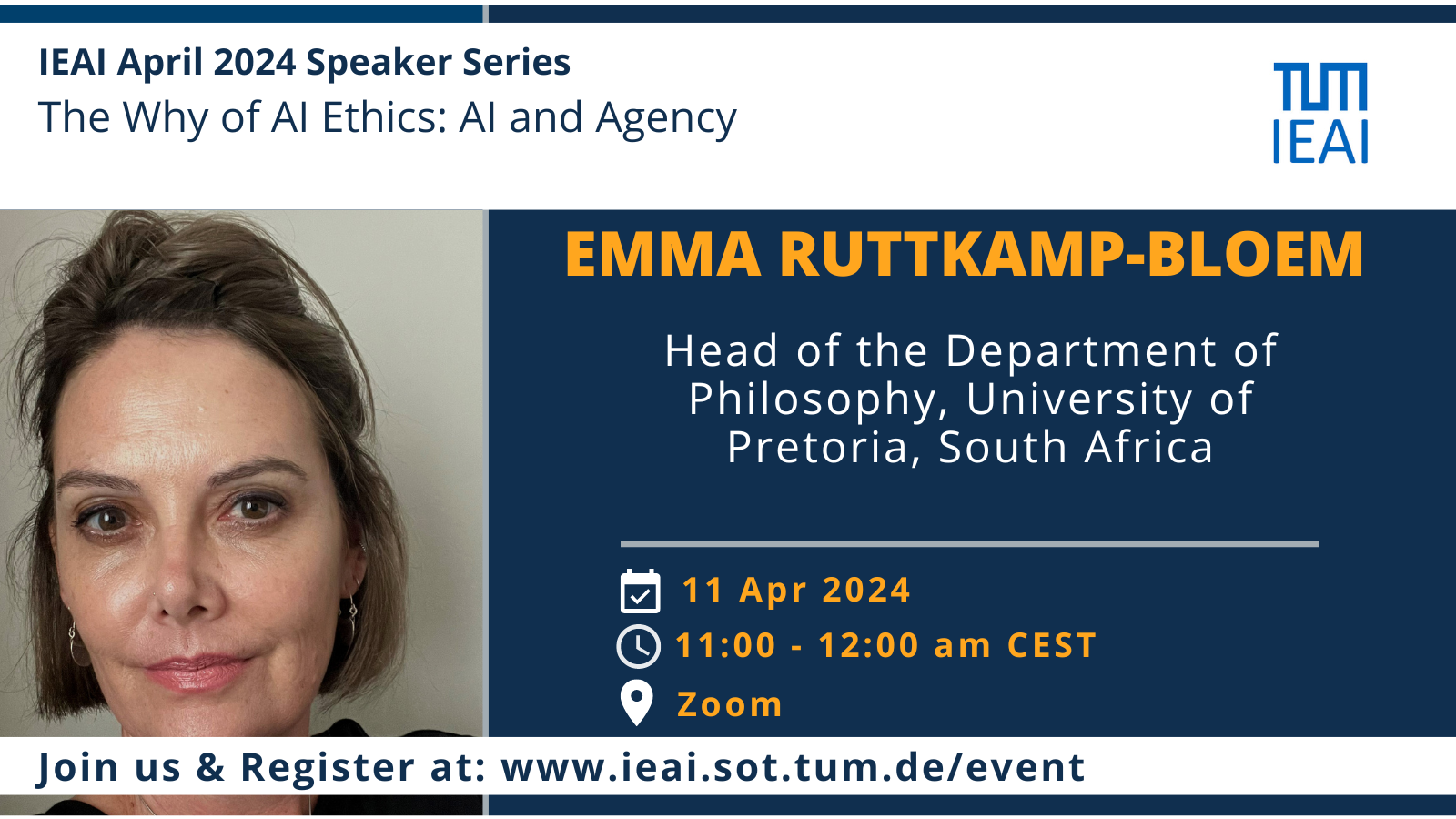The right to mental integrity
On April 11th, 2024, the IEAI hosted an online discussion on The Why of AI Ethics: AI and Agency. Our invited speaker, Emma Ruttkamp-Bloem, Head of Department of Philosophy at the University of Pretoria, delivered a thought-provoking presentation on why AI ethics is significant.
In the beginning, Prof. Ruttkamp-Bloem started off by taking us back to the fundamental feature of being human, which is to speculate how we tend to react in different circumstances. Due to the daily interaction with modern technologies and especially AI, she believes that human perspectives on life are affected correspondingly.
Therefore, Prof. Ruttkamp-Bloem asserted that the right to freedom, justice and peace was analogous to the right to being free from manipulation. AI technologies may hinder an individual´s authenticity and the right to self-determination, or self-will. These rights have long been recognized in Articles 18, 19 by UDHR and can be traced back to Aristotelian definition of a virtuous life.
Prof. Ruttkamp-Bloem continued by relating the role of AI ethics and agency in maintaining a dignified life to the WHY of AI ethics. Despite the many benefits of AI, such as democratizing healthcare (the good), AI is a double-edged sword in terms of political, economic and environmental concerns (the bad) or surveillance capitalism caused by corporate gatekeepers (the ugly).
When it comes to the importance of AI ethics, Prof. Ruttkamp-Bloem specifically argued that AI ethics is a human, rather than technical, issue due to three main reasons. First, humans tend to rely on other agencies for decision making, such as technology tools or experts. Second, both positive and negative liberty, which are based on autonomy, freedom of choice, self-determination, etc., give rise to a demand for AI ethics. Third, she cited Nussbaum´s view on “capabilities”, which is to be able to take action rationally and independently. In political context, she denoted:
Capabilities are political entitlements that impose duties on governments (Nussbaum)
Reflecting on the landscape of AI ethics, the speaker went on to say that such capabilities implied a sense of responsibility on both government and AI actors, including researchers, designers, developers and users. According to the speaker, these duties are divided into both positive and negative types.
At the core, authenticity and living a dignified life are fundamental principles of AI ethics. To achieve this, values and principles ought to be treated as positive ethics in which agency and autonomy are irreplaceable factors.
Back to the WHY AI ethics, she reconciled AI ethics as not only a bridge to AI governance, but also the ear to the ground in various ways. For instance, AI ethics ensures humans are able to live authentic and dignified lives and offers a strategy for understanding the social values of technologies.
She ended her presentation with a thought-provoking sentence:
A life of wellbeing in the era of AI implies a life free from mental manipulation.
We appreciated Prof. Ruttkamp-Bloem for her intriguing and informative presentation on AI ethics and agency. The recording of the event can be found here.

